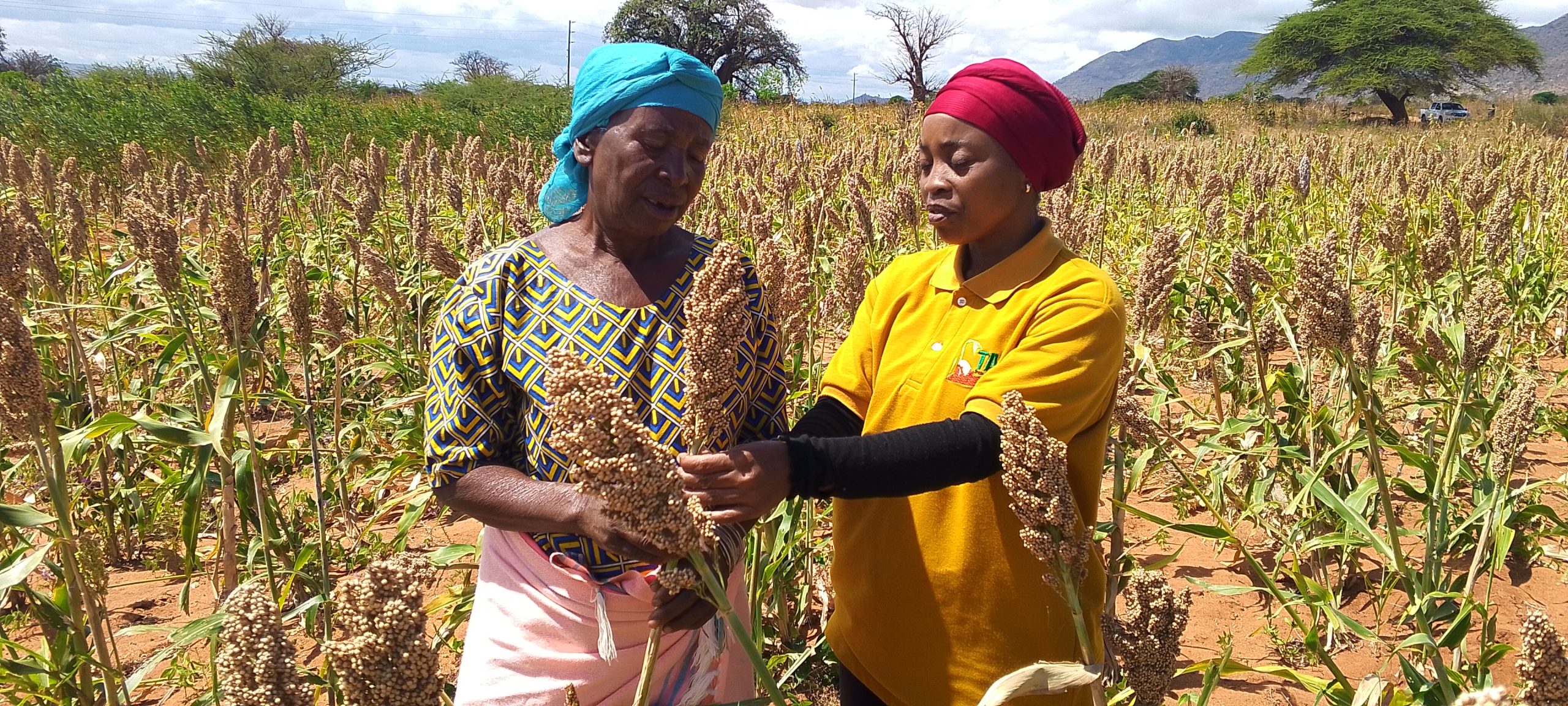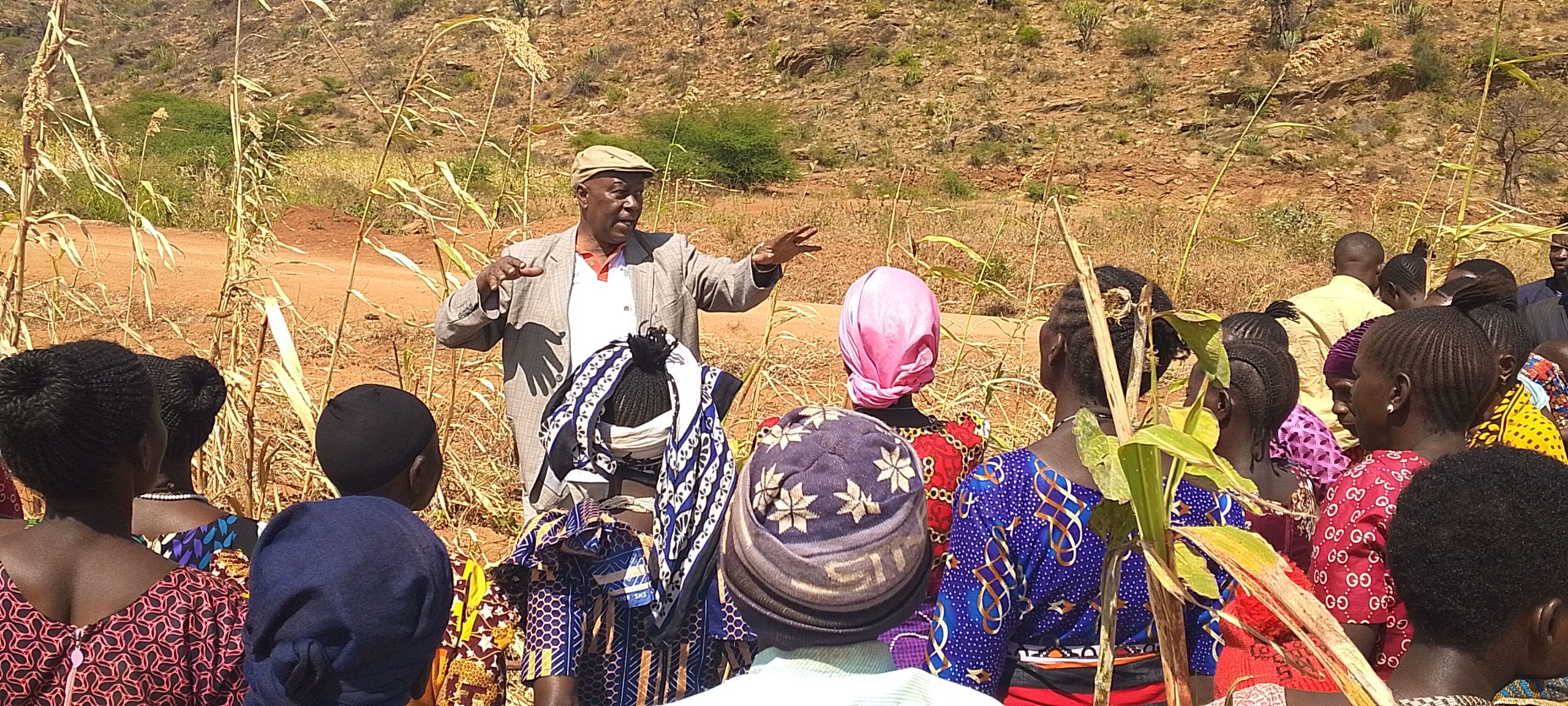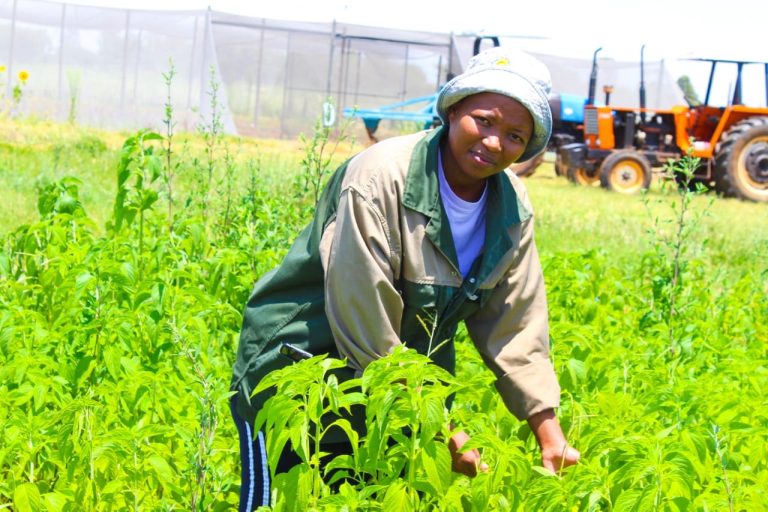
The project is implemented by a range of agro- institutes, such as the International Crops Research Institute of the Semi- Arid Tropics (ICRISAT), Tanzania Agricultural Research Institute (TARI), Tanzania Livestock Research Institute (TALIRI) and Sustainable Agriculture Tanzania’ (SAT).
KONGWA. THE regenerative agriculture project, ‘Enabling a Resilient and Prosperous Community through Participatory Agroecological Practices in the Semi-Arid Region of Central Zone’ (Rescomm II) has launched efforts to assist smallholder farmers in Kongwa district, Dodoma region to improve livelihoods through cultivation of pigeon peas and sorghum.
With expanded demand and markets for the two economic cash crops, the Biovision Foundation funded project is seeking to empower smallholder farmers from at least 150 households in Sagara ‘B’ village in Kongwa district mastermind best agro-ecological practices for the mass cultivation of the crops.
Speaking during a result – oriented farmers field day, held in Sagara ‘B’ village, Ms Ashura Dulazi, a research officer from the Tanzania Agricultural Research Institute (TARI) said the initiative is capacitating to help the farmers to improve production and productivity in the crops.
“Pigeon peas and sorghum currently attracts competitive prices at markets, but the farmers here have been growing the crops to yield very low due to several setbacks,” she said.
She unveiled the challenges used to thwart needed harvests among the farmers as persistence of drought and other effects of climate change, as well as poor knowledge on best agricultural practices among the farmers.

She said the project is implemented by a range of agro- institutes, such as the International Crops Research Institute of the Semi- Arid Tropics (ICRISAT), Tanzania Agricultural Research Institute (TARI), Tanzania Livestock Research Institute (TALIRI) and Sustainable Agriculture Tanzania’ (SAT).
“We’re working to train the farmers on soil moisture and fertility, including farmer managed natural regeneration (FMNR) for land restoration, rain water harvesting techniques through the use of tied ridges and the Fanya Juu/Fanya Chini terraces,” she said.
Other agroecological practices that rolled out by the project to assist farmers improve production, she said include best agronomic practices (GAP) training on the production of quality declared seeds (QDS) of sorghum, pigeon pea and groundnuts.
“We have also introduced them to well- researched drought tolerant seed of crop for sorghum and pigeon peas, including Macia (sorghum), Mali for pigeon peas,” Dulazi expressed.
Other vital varieties introduced, she stated, is Tumbi 105, Situka for maize, and Tanzanut 2016 for groundnut.
Monica Magomba, a – 63 yeard old, is among the farmers who benefited from the project’s training during it’s pilot operations in Sagara ‘B’ village.
“Before the project I used to harvest nothing, but I am happy that after being trained, currently I am getting enough yields,” she said.
She expressed delight and optimism that she will fetch more harvest come next agricultural season.
Mr Elirehema Swai, a senior researcher – cum- the project’s adviser, insisted over the need for the farmers in the village to make a brave use of the trainings to venture into mass production of the crops.

“For instance, pigeon peas is now sold at 2,500/- per a kilogram, which means a farmer can fetch up to 200,000/- per a sack,” he said.
He urged the youth in the village to cultivate the crop through the disserminated agroecological technologies.
With effective training to combat effects of invasive plants, including witch weed, Mr Swai said the farmers are exposed to prestigious economic opportunities to transform their livelihoods through the agriculture sector.
The second phase of Enabling a Resilient and Prosperous Community through Participatory Agroecological Practices in the Semi-Arid Region of Central Zone (Rescomm II), launched in 2024, is an ambitious initiative aimed at supporting farmers and pastoralists in the region to overcome the adverse impacts of climate change on their livelihoods.
The project receive it funds from Biovision Foundation and Liechtenstein Development Service (LED).






